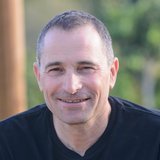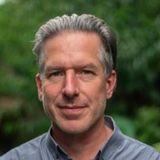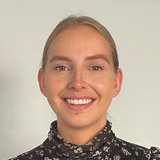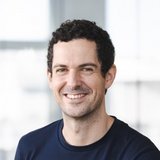
Ido Amit
Weizmann Institute of Science"Leveraging Single-Cell Technologies to Engineer the Immune System"
Prof. Ido Amit is a world leader and pioneer in single-cell genomics and its transformative applications to immunology. He earned his PhD from the Weizmann Institute of Science and completed his postdoctoral training at the Broad Institute of MIT and Harvard.
Today, the Amit laboratory serves as a global hub for interdisciplinary innovation, integrating advanced single-cell technologies and artificial intelligence to revolutionize immunotherapy and precision medicine. Prof. Amit's groundbreaking discoveries have fundamentally reshaped our understanding of the immune system and have paved the way for novel therapeutic strategies for cancer, autoimmune, and neurodegenerative diseases. He holds prominent leadership roles in major international initiatives, including the Human Cell Atlas and LifeTime Flagship, and serves as a scientific advisor to leading biopharmaceutical companies.
His scientific impact has been recognized through numerous prestigious awards, among them the Pezcoller Foundation–EACR Translational Cancer Researcher Award (2025), Landau Prize (2021), Bruno Award (2020), Sanofi–Institut Pasteur Prize (2019, HHMI International Research Scholar Award (2017), Helen and Martin Kimmel Award for Innovative Investigation (2016), Rappaport Prize for Excellence in Biomedical Research (2016), and the EMBO Gold Medal (2015).

Petra Arck
University Medical Center Hamburg Eppendorf"Maternal Immune Activation: Causes and Consequences"
Petra C. Arck is Professor of Feto Maternal Medicine at the University Medical Center Hamburg Eppendorf and leads a research programme on immunity in pregnancy. She and her team examine endocrine and immune interactions at the maternal fetal interface and study how these interactions support healthy gestation and offspring outcomes. The laboratory combines experimental models with large human cohorts to map immune adaptation, define risk patterns and propose translational approaches for assessment and intervention. Arck builds interdisciplinary collaborations across obstetrics, immunology and epidemiology so that mechanistic insight aligns with clinical relevance. Her contributions advance understanding of immune modulation in pregnancy and promote integrated analyses that link molecular signatures with maternal and neonatal health.

Simone Becattini
University of Geneva"Dissecting host-microbe interactions at mucosal surfaces"
Simone Becattini is an Assistant Professor in the Department of Pathology and Immunology at the University of Geneva. His research explores how immune responses to the intestinal microbiota and bacterial pathogens are generated, and how these microbes, in turn, interact with and adapt to the host immune system. His laboratory combines immunological and microbiological models with state-of-the-art sequencing and functional approaches to dissect this complex host–microbe dialogue. Becattini established his research group in Geneva with the support of an SNSF Eccellenza Professorial Fellowship.

Hyun-Dong Chang
German Rheumatism Research Center"Single cell analysis of host-microbiota crosstalk in chronic inflammation"
Hyun-Dong Chang is Full Professor and Chair of Cytometry at Technische Universität Berlin and leads the Schwiete Laboratory for Microbiota and Inflammation at the German Rheumatism Research Center in Berlin. He and his team study how the intestinal microbiota interact with host immunity in chronic inflammatory disease and how cytometry can profile microbial communities and host responses at high resolution. The laboratory develops and applies microbiota cytometry to fingerprint disease associated communities, to monitor changes under therapy and to link microbial states with clinical phenotypes. Chang also serves as scientific head of the Flow Cytometry and Cell Sorting Core Facility at the same center and helped advance community standards in cytometry. His current work emphasises host microbiota dialogue and aims to provide quantitative tools that support translational rheumatology and the development of new strategies for inflammatory disorders.

Michel Enamorado
Icahn School of Medicine at Mount Sinai"The Neuroimmune Landscape of Barrier Tissues"
Michel Enamorado, Ph.D., is Assistant Professor of Dermatology at the Icahn School of Medicine at Mount Sinai and heads the Enamorado Laboratory. He investigates neuroimmune mechanisms at barrier tissues and in chronic inflammatory disease, connecting immune responses, neuronal function and tissue repair. Michel Enamorado completed his doctoral studies in the Immunobiology Laboratory at the CNIC, Madrid, focusing on circulating and tissue-resident memory CD8+ T cells in tumor immunity. For their postdoc, Dr. Enamorado joined the laboratory of Dr. Yasmine Belkaid at the NIH, where, he delved into the exploration of host-microbiota interaction, sensation, healing and neuroimmune responses in the skin.
His group integrates mouse genetics, host-microbiome studies and analysis of human samples to to investigate how neuroimmune circuits regulate barrier tissue function in both homeostasis and disease.
Dr. Enamorado holds affiliations with the Friedman Brain Institute, the Precision Immunology Institute and the Mark Lebwohl Center for Neuroinflammation and Sensation, reflecting the cross disciplinary scope of his programme. The laboratory builds mechanistic insight into neuroimmune pathways with the goal of informing targeted approaches for inflammatory skin disease and related conditions.

Maike Hansen
Radboud University, Netherlands"Balancing noise and stability: How gene expression fluctuations shape cell fate decisions"
Maike Hansen leads a research group in Biophysical Chemistry at Radboud University in the Netherlands. Her goal is to identify key factors allowing for robust outcomes in noisy environments, such as the cell. In pursuit of this goal, she is using single cell biology, cell-free biochemistry and mathematics to study the fundamental aspects of gene expression. Her team develops predictive models and experimental tools to understand how noise shapes transcriptional programmes in homeostasis and disease contexts, like cancer therapy resistance.

Stefan Jordan
Heidelberg University Hospital"Nutritional Microbiology and Immunology"
Stefan Jordan leads the research group for Nutritional Microbiology and Immunology at the Heidelberg University Hospital. He his goal is to develop immunomodulatory therapies for prevention or treatment of chronic inflammatory diseases, autoimmune disorders, and cancer. With this aim, he focuses on understanding the anti-inflammatory and anti-aging effects of caloric restriction and the role of the microbiome and immune system in that process.

Axel Kallies
University of Melbourne and the Peter Doherty Institute for Infection and Immunity"Exhausted and stem-like CD8 T cells in chronic infection and cancer"
Axel Kallies is a Professor for Molecular Immunology at the Universities of Melbourne, Australia and Bonn, Germany. He and his team study immune cell differentiation and function in response to viral infection. Their work centers on understanding the molecular control of T cell differentiation and function and is frequently published in leading journals of the field, including Nature, Science, Immunity and Nature Immunology. Over the last decade, the Kallies lab has developed a focus on T cell responses to severe and chronic infection. This has resulted in the discovery of stem-like T cells that are required to maintain antigen-specific T cell responses long term and mediate immune checkpoint inhibitor therapy.

Lucie Laurien
Cell Reports"Meet the editor"
Lucie Laurien is a trained immunologist with a PhD from the University of Cologne, where her doctoral work examined how RIPK1 autophosphorylation regulates cell death and inflammatory processes in the laboratory of Dr Manolis Pasparakis. After completing her PhD, she continued in the same group as a postdoctoral researcher. In 2022, she transitioned into scientific publishing and joined Cell Press as a scientific editor at Cell Reports, where she is responsible for manuscripts in immunology and cancer research.

Ana Victoria Lechuga
Institute for Research in Biomedicine, Barcelona"The role of mitochondrial variability in shaping immune response"
Ana Victoria Lechuga Vieco is Junior Group Leader at the Institute for Research in Biomedicine in Barcelona and directs the Mitochondrial Biology and Tissue Regeneration Lab. She investigates how mitochondrial genetics and quality control shape tissue homeostasis, ageing and repair across model systems and human samples. Her group applies single cell and multi omic approaches to map mitochondrial states, immune interactions and bioenergetic resilience during stress. Lechuga Vieco is building collaborations that link mechanistic mitochondrial biology with regenerative strategies in health and disease. Her programme aims to translate fundamental insight into approaches that enhance tissue repair and performance.

Christian Münz
University of Zurich"How a human tumor virus might cause autoimmunity"
Christian Münz is Professor and Co Director of the Institute of Experimental Immunology at the University of Zurich, where he heads Viral Immunobiology. He investigates immune control of oncogenic gamma herpesviruses with emphasis on Epstein Barr virus (EBV) and studies antigen processing including roles for macroautophagy. Münz trained in Germany and the United States and moved to Zurich to develop translational models that connect viral infection with human immune responses. Recognition of his contributions includes the Burroughs Wellcome Fund Investigators in the Pathogenesis of Infectious Disease Award and the Sobek Award for work linking EBV with multiple sclerosis. His laboratory uses humanised mouse systems and cellular immunology to define mechanisms of antiviral control and to identify targets for intervention.

Sabine Tejpar
KU Leuven and University Hospital Leuven"Orchestrated inflammation and oncogenes in colon cancer and therapeutic conditions"
Professor Sabine Tejpar, MD, PhD, is a clinician–scientist based at KU Leuven and University Hospitals Leuven (UZ Leuven) who combines subspecialty clinical practice in gastroenterology and digestive oncology with an active translational research program. Her laboratory focuses on the molecular biology and molecular genetics of colorectal cancer with the explicit aim of translating biological insights into better biomarkers and therapies for patients. Major themes in her work include molecular subgrouping of colorectal tumors (including work on consensus molecular subtypes), predictive and prognostic biomarker development (for example RAS/EGFR pathway markers and tumor-sidedness), preclinical model development (including patient-derived organoids), and single-cell/transcriptomic profiling to resolve intratumor heterogeneity.

Joris van der Veeken
Research Institute of Molecular Pathology, Vienna"Research Institute of Molecular Pathology, Vienna Regulatory T cells and Foxp3"
Joris van der Veeken leads the T cell Differentiation and Function Group at the Research Institute of Molecular Pathology in Vienna. His group investigates the molecular mechanisms underlying T cell differentiation and function in health and disease. His laboratory combines genetics, genomics and cellular immunology to link transcriptional control with immune cell states and dysfunction. Van der Veeken earned a PhD at Cornell University and completed postdoctoral research at Memorial Sloan Kettering Cancer Center before establishing his group in 2021.